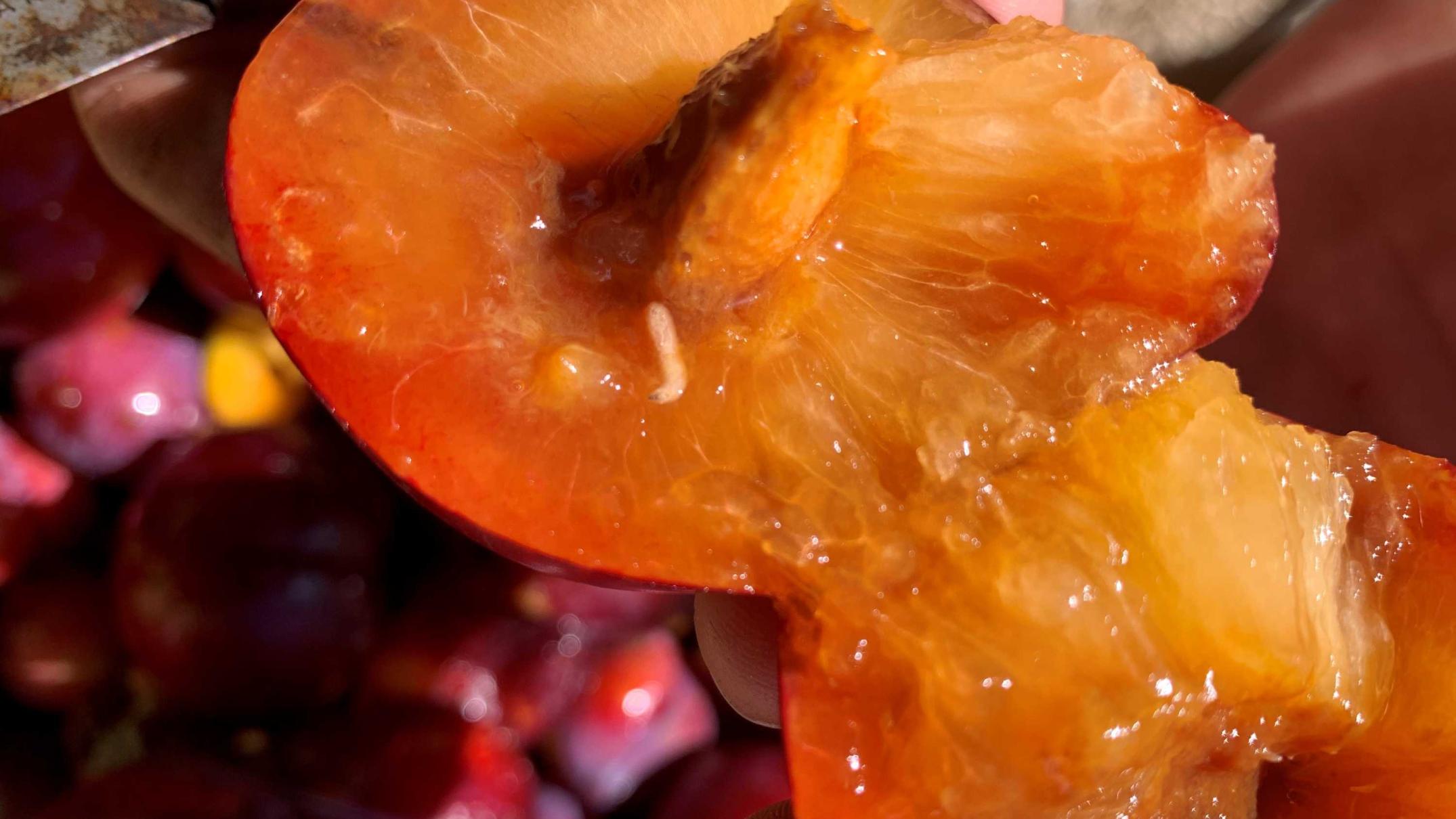The stone fruit industry says the detection on South Australian shelves of fruit fly in nectarines and peaches transported from Victoria is a failure of both states’ biosecurity systems.
Key points:
- Larvae has been detected in fruit and all related consignments have been destroyed
- The “potential failure” in biosecurity is considered a wake-up call for the industry
- Pest-free status already in spotlight with several fruit fly outbreaks
Summerfruit Australia chief executive Trevor Ranford said the fruit was found by consumers at Aldi, Coles, Woolworths and a local farmers market who then reported seeing larvae crawling inside.
Mr Ranford said there had been a total recall on the infected fruit.
“We don’t have the answers at this point in time … but given that fruit fly is very much in the news within South Australia at the moment, because of other outbreaks, the consumers here are very vigilant.”
Mr Ranford said although South Australia was dealing with other fruit fly outbreaks, this particular incident was not considered to be one of them.
“It’s larvae found in fruit, but what is concerning is that one assumes the fruit has come in under an ICA [interstate certification assurance] arrangement, and there has been a failing,” he said.
“We need to deal with it and make sure this doesn’t happen in the future — it’s a wake-up call.
“It won’t stop trade [between South Australia and Victoria] but it means the departments will be more vigilant.”
Mr Ranford said recent fruit fly events should not deter buyers from purchasing fruit.
‘Absolutely it’s a risk’
Larvae was detected in eight stone fruit in the past week and all consignments related to the contaminated fruit have been destroyed.
“We’re looking at the causes of those detections and what we can do to prevent further ones,” said Nathan Rhodes, executive director of biosecurity at SA’s Department of Primary Industries and Regions (PIRSA).
“We wouldn’t expect to see these sorts of things, and that’s why we’re working with our counterparts in Victoria to try and understand what’s gone wrong here and why these detections have come through.
“The reason we don’t call it an outbreak is because it’s not in the environment, so it’s not a detection of the pest in the environment that might be a breeding population, so while it’s contained within the produce we can control the produce and destroy that produce.
There are several Mediterranean fruit fly outbreaks in Adelaide and three outbreaks in SA’s Riverland, and Mr Rhodes said the affected areas were suspended from the state’s fruit fly-free status.
“We are undertaking a comprehensive eradication response,” he said.
“We need to give our trading partners confidence that … we are eradicating these outbreaks and through that process we hope that they will continue to maintain or reinstate recognition of our pest-free status.
“We have 7,500 fruit fly traps that are constantly looking for fruit fly throughout South Australia, and through that network we report to trading partners if and when we find them.”
In a statement, Agriculture Victoria said it had seen an increase in insect activity this season, possibly due to the warm and wet La Niña weather events.
It said it was working with PIRSA to resolve the matter.




